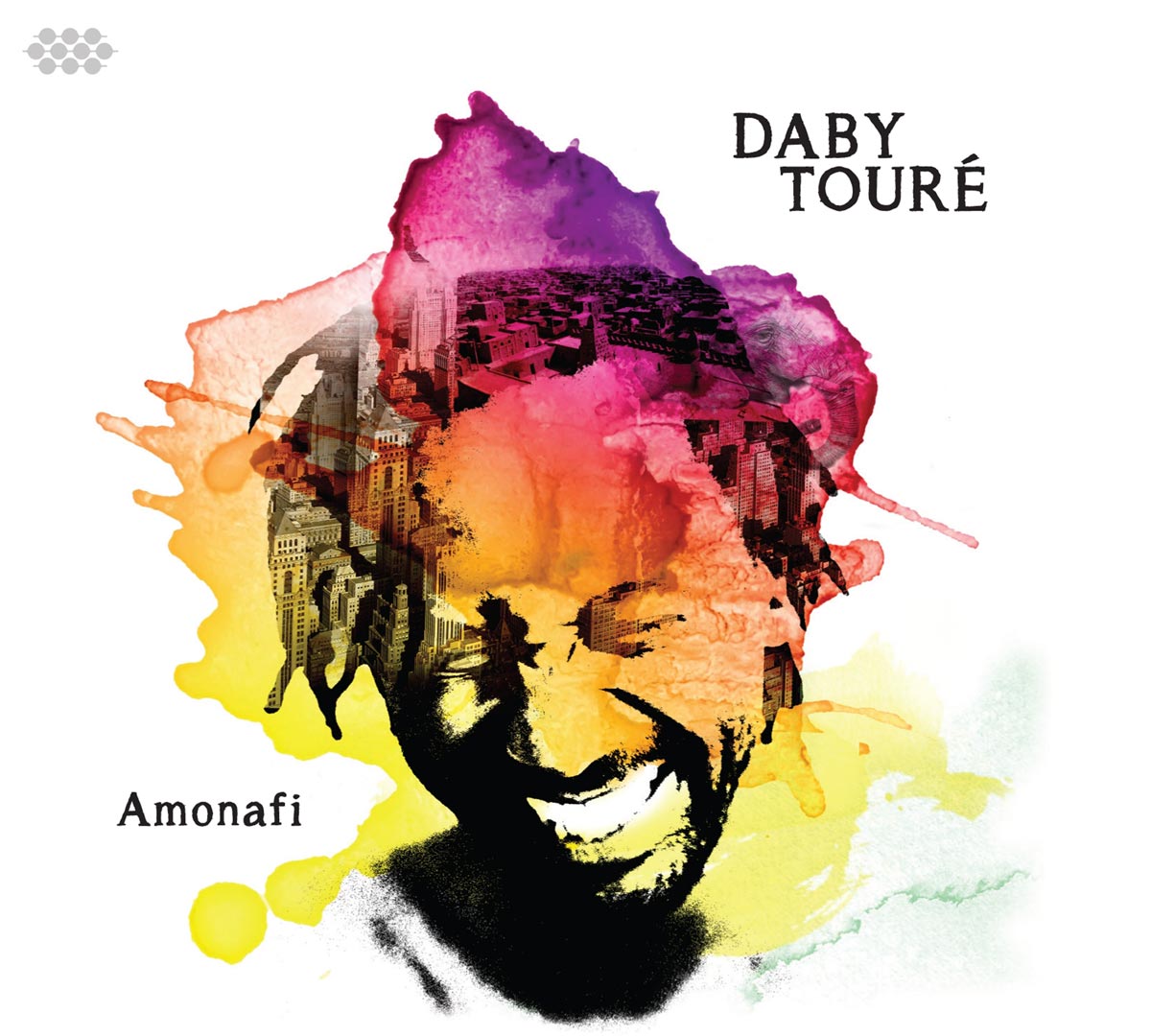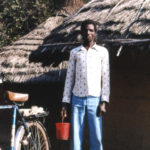
Daby Touré’s fifth album tells his own story of Africa’s history. Amonafi, which means “once upon a time” in Wolof, offers a contemporary sound that mixes a wide range of folk and pop music to create a cohesive set that echoes his upbringing in West Africa as well as his current life in Paris.
Born in Mauritania and raised in Senegal, Touré respects his heritage, but considers himself a citizen of the world and isn’t afraid to break from tradition. While Amonafi centers on Africa’s past, with vocals sung in Fulani, Soninke, Wolof and Pular, it leans heavily on a global perspective that reveals countless musical influences.
Things pick up with “Oma,” one of the most uptempo tracks on Amonafi. The infectious ska groove sits underneath some psychedelic, backwards swirling guitars as Touré sings about a mother’s cry for help. “If You” is a another upbeat song that features a tight horn section over a soulful bassline with some unexpected mandolin thrown in. It serves as a nice midway point on the album.
Touré’s vocal dexterity shines on “Khone,” an impressive a capella song with layered vocals that celebrates the freedom of the black man on the African continent. The song is taken from an opera composed for the 1969 Pan-African Festival in Algiers. Touré’s father, Hamidou, co-wrote the original song with Ablaye Waiga and this new adaptation is being passed down to future generations so they can learn from their past. Touré’s own vocal backing is powerful and fills out the song completely, leaving no room for any instruments.
“Debho” is the gem of the album. This vibrant groove instantly grabs the listener’s attention, with dynamic touches of percussion and a looping guitar riff. Here Touré pays homage to hardworking, suffering women around the world.
Touré drives the album close to home with “Soninko,” an anthem for the Soninke people. The uplifting chord progression gives a nice platform for Touré’s falsetto vocals in a fitting tribute to the great minds of the Soninke civilization.
Amonafi sounds like the work of a tight-knit group, which is a great compliment to a solo artist. Touré’s production allows this album the space to breathe while still being polished and concise. There are no tracks over four minutes long, which can be seen as good or bad. While the songs are fully realized, sometimes they finish before they really take off. Amonafi is an ambitious record that shines a new light on African history with soothing folk, catchy pop and memorable soul.
Originally published in RootsWorld Magazine.




Be First to Comment